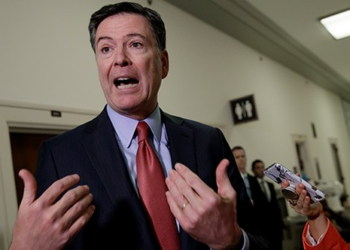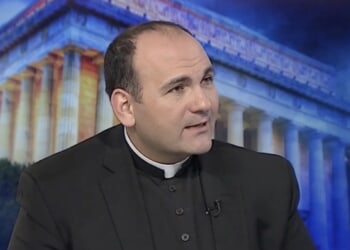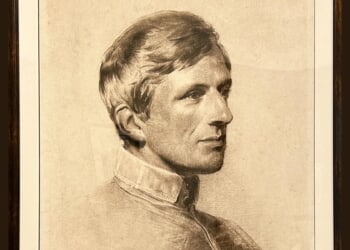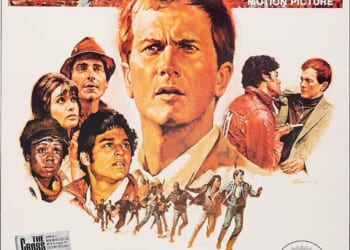Believe it or not, Almost Famous is now 25 years old. Which means that it’s been almost as much time between now and the date of its release as between its release and the year in which it’s (mostly) set, 1973. Strange to think.
Cameron Crowe, the film’s writer and director, whose debut outing was Fast Times at Ridgemont High, based Almost Famous on his own highly precocious beginnings as a rock critic. When we first meet his alter ego, William Miller (Michael Angarano), he’s eleven years old, the son of Elaine (Frances McDormand), who is — as Crowe’s mother was — a widowed psychology professor in San Diego. She’s more than a bit eccentric (for years, she’s hidden from William that he’s a year younger than he thinks) as well as being epically, and hilariously, smothering. But her hyperprotectiveness is rooted entirely in love: it’s the hippie era, after all, and she’s terrified that William will fall prey to the drug culture.
When, since Almost Famous came out a quarter-century ago, has there been any other Hollywood film remotely like it?
William’s first big turning point comes when his older sister, Anita (Zooey Deschanel), leaves home to become a stewardess and bequeaths to him her stash of rock albums — Simon & Garfunkel, the Beach Boys, Led Zeppelin, Neil Young, Joni Mitchell, The Who. Elaine views these people’s music as dangerous invitations to take up an irresponsible, promiscuous, and narcotics-addled lifestyle. For William, their songs open a window onto a new world.
Cut to William (Patrick Fugit) at 15: it’s 1973, and he’s become an ardent rock aficionado — and a gifted writer who’s already contributed serious rock criticism to a local underground paper. He meets Lester Bangs (Philip Seymour Hoffman), the famous — and famously contrarian — rock critic and editor of Creem, who quickly becomes a mentor. Rock and roll, Bangs informs William, is already over, destroyed by commercialism and a striving to be “cool.”
Rock, maintains Bangs, is “righteously and gloriously dumb. And the day it ceases to be dumb is the day it ceases to be real, right? And then it just becomes an industry of cool.” He’s speaking here of the difference between, say, the sincere innocence of the Beach Boys and the pretentiousness of Jim Morrison — whom Bangs calls “a drunken buffoon posing as a poet.” Sounds right to me.
Bangs, who plainly likes William not only because he’s a promising scribe but also because he exudes innocence and sincerity (he’s anything but cool) congratulates him for not taking drugs and urges him, in his pursuit of music journalism, to maintain his integrity — be “honest and unmerciful,” he counsels — and to avoid being co-opted by phony rock stars who will only want him to provide them with good PR.
A $35 assignment by Bangs to write about Black Sabbath leads William to encounter the up-and-coming — and fictional — band Stillwater, whose music he loves. He also meets Penny Lane (Kate Hudson), a delectable groupie who’s a part-time side piece for Stillwater’s sexy front man, Russell (Billy Crudup), but who, as William discovers at an industry party she takes him to, seems to have slept with half of the guys in the rock business.
Anyway, the next thing he knows, his Creem piece on Black Sabbath having attracted the attention of Rolling Stone’s music editor, Ben Fong-Torres (Terry Chen), William is on tour with Stillwater (and with Penny, with whom he’s falling in love), profiling them — for a cool $1,000 (which in 2025 dollars would be $7300) — for the world’s most illustrious rock magazine.
The problem is that Russell, distracted by his sexual hijinks and drug-taking, can’t find time to sit down with William for a thoughtful interview — and when the other band members do, they prove to be mind-bogglingly inarticulate. But as the tour proceeds, William keeps his eyes and ears open, taking in the musicians’ frustrations, their petty jealousies, and, above all, the ubiquitous tension between worldly ambition (and worldly temptations) and a pure, wholesome love of music.
This tension is movingly captured in a pair of sequences somewhere around the middle of the movie. At a house party in Topeka, Russell gets high on acid and shouts “I LOVE DRUGS!” — to the inane cheers of a bunch of local kids — before leaping from a roof into a filthy swimming pool. Sheer decadence! But the next day, on the tour bus, somebody starts singing along to Elton John’s “Tiny Dancer,” and soon everybody is joining in, bound together by their love of music, and there’s a well-nigh heartbreaking innocence about it.
I won’t share any more of the storyline, except to say that the last act of the movie includes a couple of near-tragedies — a Quaalude overdose at the Plaza Hotel in New York, and an almost fatal airplane mishap over Tupelo, Mississippi — plus a cruel betrayal that could destroy William’s career. Yet he ends up heeding Lester Bangs’s advice, and — well — the wind-up is just plain beautiful.
Beautiful, because this is a funny, sensitive, and absolutely charming picture about a credible, three-dimensional human being who’s on the cusp between childhood and adulthood, torn between the pull of love and loyalty to his family and a budding attraction to the passions that will define his adult life. It’s to Crowe’s credit, I might add, that he doesn’t paint any of his major characters as a bad guy. Yes, he encourages us to laugh at Elaine’s controlling personality, but we also come to respect her fierce, protective love for her beloved son; yes, Crowe showcases Russell’s multitudinous flaws, but also makes it clear that there’s a whole lot of good in him.
Perhaps I’m prejudiced in favor of Almost Famous, in large part because it’s set during the period when I myself was a teenager. (I would’ve been a year or so older than William.) Maybe you have to be old enough to have lived through that period to be touched when a member of Stillwater tells an audience: “We’ll see you all again in 1974!” and when another member reflects that, “In eleven years it’ll be 1984! Think of that!” And then there’s the scene in which Fong-Torres, in San Francisco, tells William, who’s in New York, that he can send in his article by way of a “very modern” machine at the Daily News that transmits manuscripts at “only eighteen minutes a page.”
As for the music, no, I didn’t share William’s adoration for most of the rock music of that era: instead, I spent much of my time, during my high-school years, at my family’s living-room piano, playing standards by Gershwin, Berlin, Porter, and Rodgers & Hart. Nonetheless, the songs that are used in the movie’s background score, such as Chicago’s “Color My World” and Stevie Wonder’s “My Cherie Amour,” are unusually winning melodies that I remember liking at the time (we played a Chicago medley in my high-school band) and that today carry with them — for me, anyway — an overpowering rush of nostalgia.
Then there’s this. Almost Famous captures a moment in time when humankind was approaching the end of the pre-Internet age. Nowadays, it can seem, to quote Wordsworth, as if “the world is too much with us”; but in 1973 our experience of the world, such as it was, was (except for those who spent their days glued to the TV) almost entirely direct, personal, physical, palpable — not mediated, as so much of it is today, by a global system of computer networks.
It made a difference. The movie’s called Almost Famous: in 2025, it can seem as if almost everybody is famous, with their own podcasts or OnlyFans accounts. As for music, Lester Bangs was absolutely right: by 1973, rock was already on its way out, and since then, in its place, we’ve had pop music that’s grown more insipid (with a few exceptions) with every decade.
And movies? When, since Almost Famous came out a quarter-century ago, has there been any other Hollywood film remotely like it — which is to say, a nice movie about real people, about family, about growing up? Yes, there was Boyhood in 2014 — but it began shooting in 2002, when it was easier than it is now to get a tender coming-of-age story greenlit. Then there was Moonlight (2016), which won the Oscar for Best Picture – but what made it attractive to the Tinseltown money men was not that it was a gentle, appealing Bildungsfilm but that its protagonist was gay and black.
One last word. The original release of Almost Famous, which I watched at the time, ran a tight, tidy 122 minutes. The “extended cut” that was issued on DVD a year later, and that I watched before writing this piece, lasts a full 161 minutes — just fourteen minutes shorter than The Godfather. But it doesn’t feel at all flabby or gratuitous. On the contrary, it adds extra dialogue — sometimes just a line or two, sometimes much more — enriching many scenes with plot and character details that contribute substantially to the film’s overall impact. A lesser movie wouldn’t deserve to take up 161 minutes of your time. But this one does. It’s that terrific.
READ MORE from Bruce Bawer:


![Scott Bessent Explains The Big Picture Everyone is Missing During the Shutdown [WATCH]](https://www.right2024.com/wp-content/uploads/2025/11/Scott-Bessent-Explains-The-Big-Picture-Everyone-is-Missing-During-350x250.jpg)







![American Troops Set for Hard Times After Dems Vote to Block Their Pay Eight Times [WATCH]](https://www.right2024.com/wp-content/uploads/2025/10/American-Troops-Set-for-Hard-Times-After-Dems-Vote-to-350x250.jpg)






